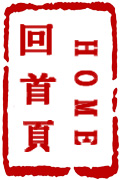
 Electroacoustic Music Studies Network
Electroacoustic Music Studies Network
2015 (new) | 2014 | 2012 | 2011 | 2010 | 2009 | 2008 | 2007
14-18 June, 2011, NYU Arts and Science Building, 32 Waverly Pl. New York City
From EARS to CHEARS by Zhang Ruibo (Mungo)
Abstract: The ElectroAcoustic Resource Site (EARS) system is run by the Music, Techonology and Innovation Research Centre at De Montfort University, an internationally peer-reviewed professional (multilingual) glossary system for electroacoustic (EA) music as well as a bibliographic resource and publisher. EARS is a scientific, integrated and dynamic knowledge system that is based on standard terminology and uses the internet as its user platform. It can be applied in all of aspects of EA Music research in the contemporary era. China ElectroAcoustic Resource Survey (abbreviated as CHEARS). It, like EARS, will include a Glossary, Index and Bibliography in Mandarin (and will also be integrated within EARS once completed). It will include a translation, adoption and enhancement of this system, which is becoming a bilingual internet-based collaborative research resource including multi-user communication area, text resource, events and music criticism sections unique to China as well as to the EARS project, itself.
This paper covers the development of CHEARS from an historical point of view. It will take EMS06 conference that was jointly held with Musicacoustica festival (Terminology and Translation, Beijing) as the initial point to cover all of the historical events in detail that has happened on CHEARS, for example, it made its first international debut as a localized research of its own kind from China at EMS07 (Leicester, UK); the master's thesis, The Application of an Internationally Peer Reviewed Professional Glossary System, the ElectroAcoustic Resource Site (EARS), was approved in 2008 by Central Conservatory of Music (CCoM), Beijing China; it brought up the EARS full-text translation plan at EMS08 conference (Paris, France) etc. After EMS10 conference (Shanghai) and EMSAN track in 2008 and 2010 (Musicacoustica festival, Beijing), CHEARS is becoming a bilingual internet-based collaborative research resource (the prototype can be found at http://chears.info) for people interested in the studies of electroacoustic music in China. Besides the information concerning authors, translators, proofreaders and consultants regarding terminologies and bibliographies, an enhanced professional project for wider impact in China to play a role of collecting and distributing a broad variety of types of information, coordinating academic and non-academic areas of the site, etc. through its multi-user Comment, Reader, Message and Criticism systems for Terminology, Bibliography, Lecture and Concert section respectively will all available on it. This hierarchical approach is typical to Chinese culture and a new approach in terms of EARS development.
Beyond the history, this paper will also discuss about how much Chinese electroacoustic music society (academic and non-academic) will benefit from an English-Chinese Bilingual Internet-based Collaborative Research, as well as how much an international conference (Electroacoustic Music Studies Network -- EMS, and its Asian Network -- EMSAN) will influence the localized academic research at EA music area in China by taking the development of CHEARS from 2006 to 2011 as an example, including the latest topic that CHEARS will get its language expanded to Japanese and Korean. Since they are E. Asian countries with strong EA music background and they have been influenced greatly by Chinese in history. The point is that Chinese terminology is very likely to get inspired from these two kinds of culture. Finally, CHEARS will be transformed into a pedagogical system (all of the information that available on it will be connected to each other according to the hierarchical structure from EARS) comparing with the curriculum for EA music that already exists in China and it is not to finalize electroacoustic music terminology in Chinese (almost impossible in next couple of decades), but instead to arouse the attention to the importance of terminology and translation.